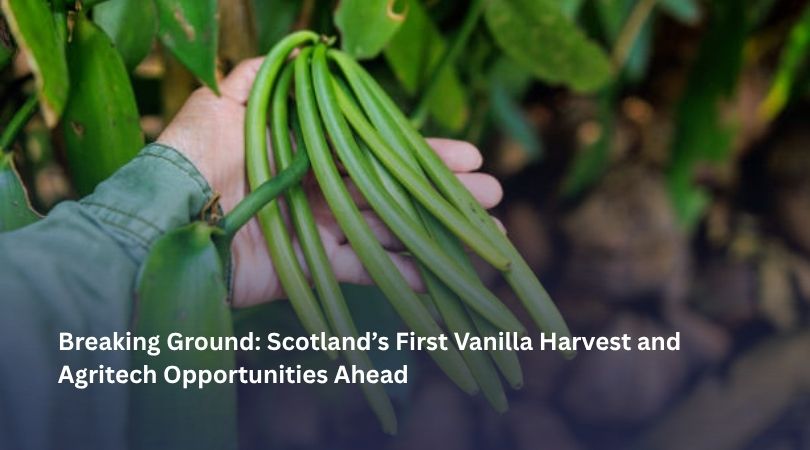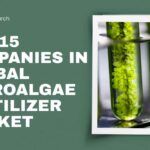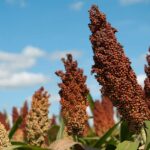Scotland has entered new agricultural territory with its first homegrown batch of vanilla, produced by Aberdeenshire-based Vanilla Farms. The company, operating from ONE SeedPod, Scotland’s food and drink innovation hub, has cultivated Vanilla planifolia indoors under controlled conditions — an achievement never before attempted in the region.
The milestone follows four years of research and development led by co-founders Gillian and Joe Lane. By applying proprietary technology and sustainable methods, Vanilla Farms has created conditions that allow the tropical orchid to thrive year-round in Scotland’s mild climate. The first batch is now curing and will be released within weeks.
The breakthrough has drawn political and industry recognition. Aberdeenshire East MSP Gillian Martin described the venture as “a shining example of innovation and entrepreneurial spirit,” while Scottish EDGE Chief Operations Officer Kevin Walls said the business showcases “the remarkable potential of Scotland’s biotechnology industry” in contributing to economic and net zero goals.
Vanilla Farms secured £150,000 in funding at Scottish EDGE Round 25, supported by Scottish Enterprise, and became the first official tenant at ONE SeedPod. The facility offers food-safe manufacturing kitchens and pilot development spaces designed to help businesses scale and compete internationally.
For CEO Gillian Lane, the project is about reshaping a troubled global industry. “The vanilla market, worth over £3 billion, is volatile and opaque. By curing vanilla in Scotland, we can offer traceability, terroir-driven flavour, and year-round consistency,” she said.
Industry observers say the achievement highlights broader opportunities for agritech. If vanilla can be grown in Scotland, similar models could be applied to other niche botanicals and high-value crops, creating new supply chains for the food and fragrance sectors.










